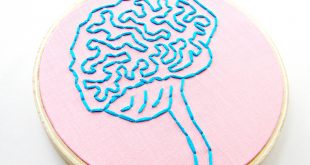Consumers spend close to a billion dollars on self-improvement books each year. On the one hand, the wide popularity of self-improvement books offers tremendous opportunity. Millions of people struggle with anxiety, stress, and worry each year, but few are able to access the evidence-based psychotherapies that successfully target these problems. …
Read More »Comparing cognitive fusion and cognitive reappraisal as predictors of college student mental health
Do painful or negative thoughts get in your way? Try holding them lightly. There is widespread consensus in modern cognitive behavior therapy (CBT) that thought processes play a large role in mental health. For example, we know that people who experience more negative thoughts about themselves and their lives are …
Read More »Comparing in-the-moment skill coaching effects from tailored versus non-tailored Acceptance and Commitment Therapy mobile apps in a non-clinical sample
There is growing research demonstrating that mobile apps can be used to improve mental health and help address many common psychological disorders (e.g., Firth et al., 2017; Torous, Levin, Ahern & Oser, 2017). Typically, these apps teach new psychological skills to users to learn how to better cope with difficult …
Read More »The role of personal practice in therapist skill development: A model to guide therapists, educators, supervisors and researchers
Personal practice for therapists – should it be a core part of our training and professional development? During the twentieth century, personal therapy was just about the only recognised personal practice option for therapists (Rønnestad, Orlinsky, & Wiseman, 2016). It was (and still is) a mandatory requirement in some schools …
Read More »Emotion regulation strategies in daily life: mindfulness, cognitive reappraisal and emotion suppression
Most empirical studies of emotion regulation have relied on retrospective trait measures, and have not examined the link between daily regulatory strategies and every day emotional well-being. We used a daily diary methodology with multilevel modelling data analyses (n = 187) to examine the influence of three emotion regulation strategies (mindfulness, cognitive …
Read More » Cognitive Behaviour Therapy A peer reviewed, multidisciplinary journal devoted to the application of behavioural and cognitive sciences to clinical psychology and psychotherapy.
Cognitive Behaviour Therapy A peer reviewed, multidisciplinary journal devoted to the application of behavioural and cognitive sciences to clinical psychology and psychotherapy.




